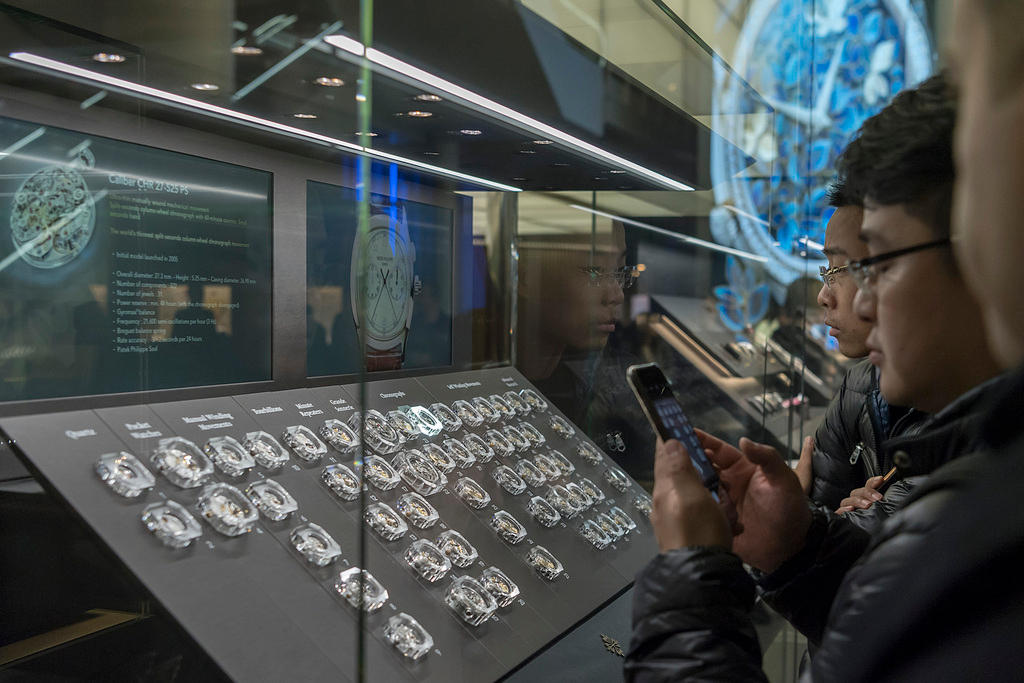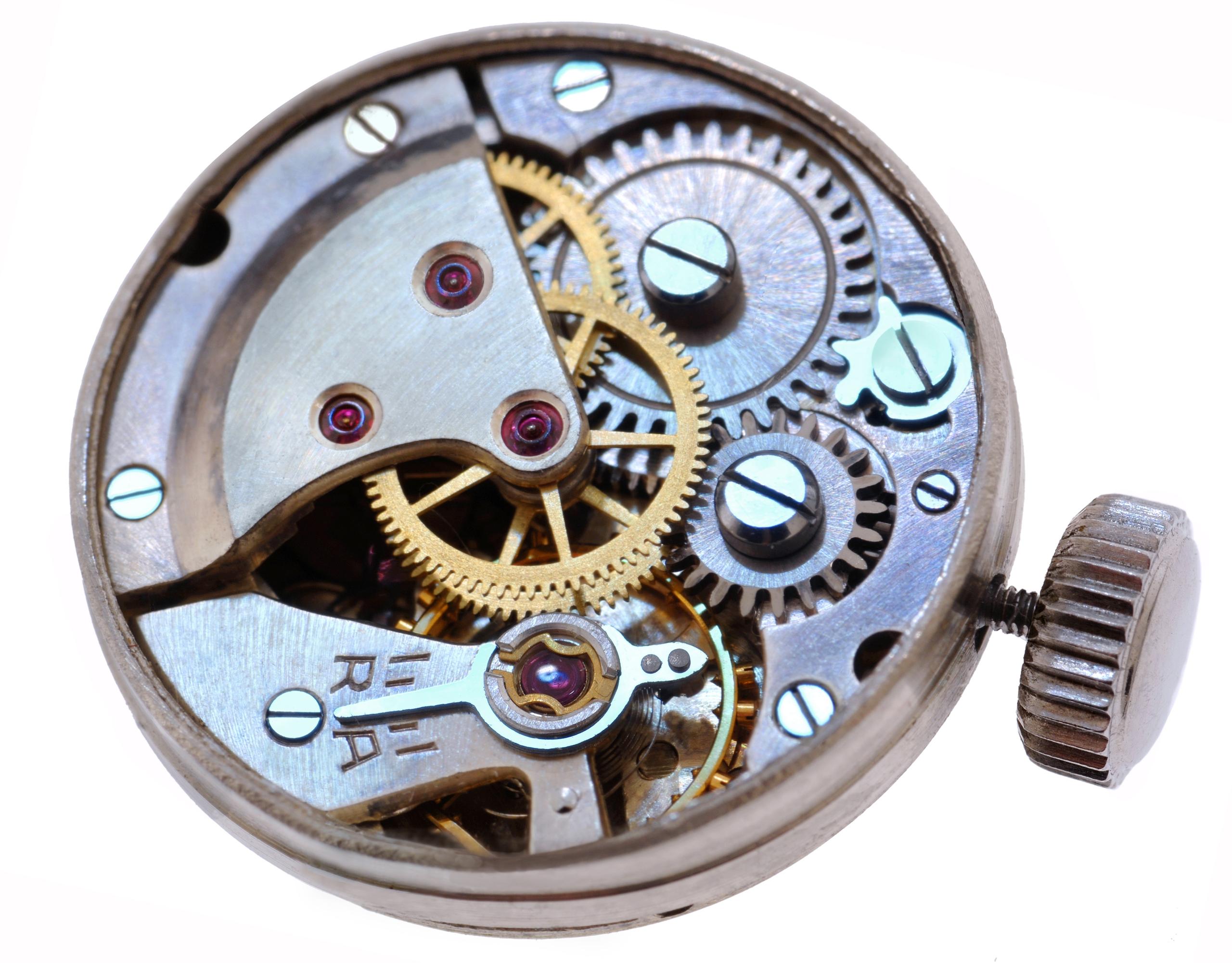Swiss watchmakers play long game as smartwatch sales slow

With his shaved head, black shirt and relentless optimism, Jean-Claude Biver looks as if he might own a US west coast tech start-up. In fact, Mr Biver is at the forefront of the Swiss watch industry's reaction to tech-enabled smart watches, which industry executives believe is no longer the sort of existential threat once feared.
This week, Mr Biver, president of Tag Heuer and LVMH’s wider luxury watch division, passionately defended traditional watchmaking at Baselworld, the 100-year-old exhibition for Swiss timepiece manufacturers on Switzerland’s border with France and Germany.
“I don’t want to criticise these people,” Mr Biver says of his consumer electronics rivals. “I suppose that they sell just technology, and that is not enough, because on the wrist, people want emotions, people want dreams.”

More
Financial Times
External linkSwiss watchmaking remains locked in a steep downturn. Exports fell almost 10 per cent last year – largely the result of a spluttering global economy, overstocking in Hong Kong and a crackdown on the “gifting” of luxury watches in China.
But, crucially for the industry, the fall in sales is not being blamed on the sort of structural shift in the market towards smartwatches that some analysts had predicted. In fact, makers of such wearables are now nervously looking at their own sales in a market for connected devices that has not take off as quickly as forecast.
This year’s Baselworld strengthened the conviction among Swiss watch makers that consumer electronics rivals are not their biggest threat – and may even help a turnround in demand for finely crafted mechanical timepieces.
When first launched, the Apple Watch divided observers in the Swiss industry, which accounts for 95 per cent of watches retailing at more than SFr1,000.
“Three years ago, Apple didn’t have to pay for a stand [at Baselworld] and they were the talk of the town,” recalls Benjamin Berghaus, luxury industry specialist at the University of St Gallen.
The worst-case scenario was that US or Asian-designed electronic fashion and fitness icons would threaten a similar near-death experience for Swiss manufacturers as the arrival of Japanese quartz watches in the 1970s.
That has not happened. Sales of smart watches stalled last year – units shipped fell by 51.6 per cent in the third quarter of 2016 compared with the same period a year earlier, according to IDC market intelligence. Wearables pioneers such as Fitbit and Jawbone have struggled.
Smart watches were “quite interesting for people who do sport,” says François Thiébaud, president of Tissot.
But wristwatches are emotional products. “The first watch you ever received, you never forget. You don’t usually keep the first smart watch you get,” says Mr Thiébaud.
“Why would you put a computer on your body?” asks Mr Biver.
Nick Hayek, chief executive of the Swatch Group, told journalists last week that compared with Swiss watches meant to last generations, some new products had “life cycles of just six or 12 months, and then the supplier has to write off their investment”.
But watchmakers are still mindful of the need to bring elements of this market into their own ranges, with executives pointing to the lower price bracket in particular being fought over by younger, sportier Swiss bands.
Tag Heuer launched a connected watch ahead of Baselworld. Meanwhile, Swatch, the company behind brands such as Omega and Tissot as well as the eponymous mass market watches, revealed last week it was developing an operating system to rival Apple’s iOS and Google’s Android. This would enable its own “eco system” of miniaturised products.
Rather than a threat, smartwatches could boost demand for expensive mechanical timepieces, the industry hopes. “Many young people do not wear a watch – they spend their time on their mobile phone or tablet,” says Tissot’s Mr Thiébaud. “Maybe [the smartwatch] introduces them to wearing something on their wrists.”
One watch executive quipps, “young men grow up and move on to dodging taxes and luxury goods”.
Mr Hayek also insists that Swatch’s connected devices “must stay a watch. We don’t want to be part of the consumer electronics industry.”
This is a sentiment echoed by rivals coming from the electronics sector. Hiroshi Nakamura, executive vice-president at Japan’s Casio, warns that traditional watchmakers do not have the necessary technological background. “For Swiss mechanical manufacturers to create smartwatches is nearly impossible,” he says.
At the top end of Swiss watch making, however, the question is reassuringly academic for the large luxury houses. Fine Swiss mechanical watches are sold as items of jewellery to be treasured for generations. “At the high end, it is not an issue at all – they are insulted if you compare their products with an Apple Watch,” says René Weber, analyst at Vontobel. “Personally, I don’t need my email inbox on my wrist.”
Watches are often the only item of jewellery men allow themselves to wear, argues Davide Traxler, chief executive of Corum, the luxury Swiss watch maker whose customers have included US presidents Richard Nixon and George Bush senior. “I would even go so far as to say they [customers] don’t really care if they can’t read the time,” he adds.
That does not mean a revival of Swiss watch making is imminent. Analysts expect that geopolitical worries and economic uncertainty – as well as changing consumer tastes – will almost certainly dampen sales in 2017. “Now people are getting worried for other reasons – but not because of digital watches,” says Mr Berghaus.
Additional reporting by Josh Spero
Copyright The Financial Times Limited 2016

In compliance with the JTI standards
More: SWI swissinfo.ch certified by the Journalism Trust Initiative










You can find an overview of ongoing debates with our journalists here . Please join us!
If you want to start a conversation about a topic raised in this article or want to report factual errors, email us at english@swissinfo.ch.